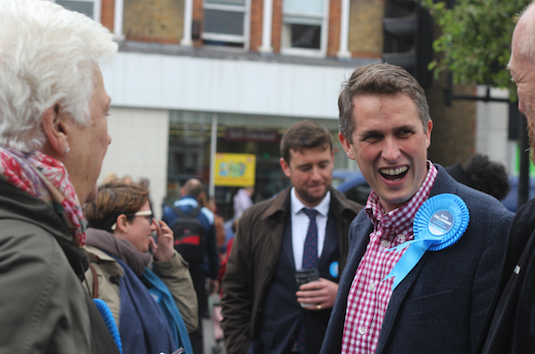Karl Marx enjoyed historical ironies, but I doubt he'd have been cheered by this one. The greatest event in human history is simultaneously its most tragic event, a people who reached for the heavens laid low by the harsh, hellish realities of war, starvation, repression and dictatorship. The Russian Revolution, Red October, has met its centennial. An occasion to celebrate or commemorate depends very much on your political persuasion, but what it is, what the whole Soviet experience should be is something too many on the left have resisted: an occasion for learning.
If the 1871 Paris Commune was the first breach in the international order of capital, the October Revolution posed it an existential threat. Not only did it expropriate the aristocracy and emergent bourgeoisie, it lit the touch paper of a revolutionary blaze that fanned outwards into Europe, into the colonies, into India and China and won it a global army of adherents. After the collapse of Imperial Germany the continent came close, very close, to turning red. Alas the revolutionary wave ebbed and socialism's outrider became its sole bastion. Nevertheless the establishments of Europe knew what the revolution represented. It was a warning, an unwelcome intrusion of the masses into history bearing one simple message: that capitalism was on notice. The propaganda aimed against the Soviet Republic, the soldiers and material the colonial powers shipped to Russia to strangle the experiment in its cradle, this was done not to restore democracy or prevent dictatorship. Its simple aim was to drown the revolution in blood. The Russian civil war that raged from 1918-1921 consumed the lives of 10 million people, but even that couldn't break it. Nevertheless the utter devastation - think 1990s Afghanistan on a much larger canvas - saw to its pacification in terms of the international game. Socialism in one country, Stalin's original sin as far as the Trotskyists were concerned, was a break with received Marxist understandings of the global character of revolution, but also a doctrinal adaptation to material circumstances and the rebadging of the old Tsarist bureaucracy as so many people's commissariats.
And here lies the first problem with coming to grips with the revolution. Marxist understandings of the revolution performed in its name are too often bogged down by factional debates and their attendant mythologies. For the Social Democrats it was a case of instant dismissal. They preached against the violence of putschism, fetishised constitutionalism and attacked the Bolsheviks for not respecting the political gradualism they were wedded to. Yet this condemnation was strangely absent when it was a matter of turning guns on colonised peoples or the revolutionary masses of Europe, as was the case in Germany after the Great War. The anarchists were simultaneously hostile for the revolution not being revolutionary enough and located Soviet authoritarianism in a red thread stretching back to Marx's expulsion of Bakunin from the First International for ... wanting to place the organisation under the control of a secret conspiratorial outfit with him as the head. Hmmm. For the Trotskyists everything was fine and dandy until the 1921 party congress banned factions and it was the slippery slope after then, and for your Stalinists (depending on the flavour) things were a-okay until Khrushchev's secret speech in 1956, or right up until the Berlin Wall fell.
Of course, this account leaves out much detail, but the point remains. There is little consensus about what the lessons of the Russian Revolution are, and therefore conclusions, be they scholarly or political, are footballs to be kicked about in the ebb and flow of interests. For much of the Cold War period, despite the prevalence of us-vs-themism, there were contesting interpretations. After the end and the temporary triumph of neoliberal capitalism and governance, the USSR and the revolution that spawned it were an aberration, something to be reviled if it was ever to be talked about at all. As politics opens up again and socialism and communism are once more at large, ambiguity is more the order of the day - of which this post is one of many left wing examples.
The crucial problem, the issue returned to time and again is the erroneous suggestion the Bolsheviks started out as a dictatorial outfit. After all, it's there in Lenin's What is to be Done?, an otherwise obscure pamphlet of boring polemics old Lenners aimed at his rivals and fellow exiles in the Russian Social Democratic Labour Party. Indeed, Trotsky earned his spurs if not his notoriety in these self-same circles for attacking Lenin's "authoritarianism". He was more right than he could have ever supposed when he argued "... these methods lead, as we shall see below, to the Party organisation “substituting” itself for the Party, the Central Committee substituting itself for the Party organisation, and finally the dictator substituting himself for the Central Committee". And yet contrary to the standard interpretation of Lenin and the bureaucratic sects and cults who farcically claim to be repositories of the Bolshevik tradition, "these methods" were not Lenin's argument at all. As the sterling scholarship of Lars T Lih on the life and works of Lenin show, the model he favoured and worked to base the revolutionary party on was actually German Social Democracy, albeit adapted to conditions of Russian illegality. That was a tradition of relating democratically to workers and peasants, it meant a disciplined approach to political activity married to a noisy and dynamic culture of criticism and open debate. The RSDLP, which incubated the Bolshevik and Menshevik factions was never a monolith, and following the final split between the two and the transformation of both into parties, they inherited the characteristics of its defunct parent. The party that led the insurrection was also a party with a democratic culture and with open factions who published their own material. It was formally and substantively more democratic than the Labour Party. There was clearly a qualitative break between the Bolshevik Party of Lenin prior to the revolution and the mockery of workers' power it later became.
How did we arrive at the gulag from this? For Trotskyist accounts of the revolution, the young Soviet Republic was hampered by its narrow social base. Only small numbers clustered in the urban areas and attending the (then) limited transport network could be considered proletarian - the rest were the peasantry. In short, the revolution had to rely on winning over a much more numerous class whose immediate interests were in tension with socialist aims. Complicating this was the revolution coming under siege by internal reaction and the armies of the Allied Powers, who poured in once Germany and Austro-Hungary were put in their boxes. As the civil war persisted the Soviets, the constitutional bedrock of the new order, got sidelined and, to make matters worse, the most conscious and dedicated revolutionaries were killed in the slaughter or absorbed by the bureaucracy in directional roles. This, goes the story, provided the material base for the strangling of the revolution by the apparatus and the subsequent rise of Stalin as its champion and overlord. The Trotskyist account is right as far as it goes, but as anarchist criticisms make clear, the disruption and destruction of democratic functioning was a pronounced tendency from the very start. In her memoirs Alexandra Kollontai recalls weeping as she called in the heavies to disperse protesters at her commissariat, and this was before the civil war got properly underway.
Bolshevist authoritarianism came not from the party but the process of revolution itself. As Engels himself noted in a polemic with "anti-authoritarian" socialists,
... the anti-authoritarians demand that the political state be abolished at one stroke, even before the social conditions that gave birth to it have been destroyed. They demand that the first act of the social revolution shall be the abolition of authority. Have these gentlemen ever seen a revolution? A revolution is certainly the most authoritarian thing there is; it is the act whereby one part of the population imposes its will upon the other part by means of rifles, bayonets and cannon — authoritarian means, if such there be at all; and if the victorious party does not want to have fought in vain, it must maintain this rule by means of the terror which its arms inspire in the reactionists.
A revolution leaves very little room for democratic niceties, as every single one from the English Civil War to the 1979 overthrow of the Shah in Iran demonstrates. For all the fantasies of the cleansing violence of revolutionary action, revolutions have the tendency to consume everything, not least the people who made it, as the French and Russian examples attest. And that, ultimately, has to be the enduring lesson of what happened a century ago this evening. A peaceful putsch - more people were injured during the staged and filmed storming of the Winter Palace than the actual event - was a prelude to a war so bloody that only the Nazi invasion of Russia surpassed it. For Marx, socialism and communism was the immense majority moving in the interests of the immense majority, a position now opening up again by the confluence of rising culture, rising networks, and sharpening politics. Going beyond capitalism doesn't, at least in the advanced West, require an insurrection and civil war precisely because the character of class struggle is changing. There are no blueprints for what comes next, only pointers provided by the directions new struggles takes and what new constituent processes are tending towards. Therefore one should mark the October Revolution, even raise a toast to the comrades who made it, but never forget it's a warning as well.
What's going on? Take our mate Jolyon Maugham QC, for instance. Commenting on the latest Ipsos MORI putting Labour on 40% and the Tories on 38%, he argues Labour needs a new strategy and leadership because it can't "make headway". We can forgive him because he knows not what he does. But this is a common refrain. The Tories are stuck down t'pit, but Labour are hardly pirouetting top side. Indeed, it's the basis for stubborn Corbyn scepticism and hostility, the idea our lead should be measured in light years, not single digits and that were the party headed by some centrist/liberal hero we'd gallop away with the next election. Why isn't it happening?
Because polarisation. Consider the difference between now and early period New Labour before the 1997 general election. Then, as now, a strong, confident Labour Party faced a chaotic and exhausted Conservative government. The difference was on the core fundamentals ranging from approach to public spending to the role of markets, the hegemony of business, the sidelining of unions and so on the Tories and New Labour had an unspoken policy compact. Today, the Tories offer a programme, if it can be called that, self-evidently geared around the protection of class privilege while Labour offers something that can renew British capitalism and open the path to something beyond it. The 1990s were a time of class peace, albeit one of capital's terms thanks to the defeats of the 1980s and the collapse of the Soviet Union, and now is a time of sharpening class conflict.
If the frisson of Marxist verbiage is too much for your delicate constitution, consider it like this. Prices are rising faster than wages. Low wage insecure work is the norm, particularly for younger people. Thatcherite policies aimed at creating a property owning democracy has merely fostered a speculative caste of landlords blocking people, again mainly the young, from accessing the housing market. Public services are defunded and social security is a system of victimisation rather than support. Meanwhile, profits are doing alright and our home grown oligarchy, the beneficiaries of the flood of wealth from the poor and the modest to the super rich, has interred its cash offshore. Social mobility has seized up and only the availability of credit and cheap imports have prevented a crash in living standards. If your life is buffeted by a professional salary or better, you might not notice this shape of the world. But millions of people have and are getting stirred by it.
Something else is going on as well. The way the economy works is changing, a quiet, subtle revolution that has unfolded over the course of the last four decades: the replacement of material by immaterial labour, or to be more accurate, the increasing importance of intangible commodities - information, knowledge, services, relationships - to the business of profit making. There is much variety among this emergent layer of people working here, but a great many commonalities too. They are in some ways less dependent on the employer. Their skills, knowledge, personalities, resources are employed by business in the process of immaterial production. The customer service assistant has to affect a friendly and helpful countenance, as well as a feigned passion for whatever they're selling. The manager flitting from company to company brings with them organisational killer apps and people know-how (at least that's what they tell prospective employers). In both cases their social being is where their use lies, and what businesses transform into value via employment.
This social being simultaneously is and isn't an individual property. Social knowledge is arrived at cooperatively. Take a microscope to someone's personality and ultimately it's a sedimented history of social interaction all the way down. As human beings all of us are engaged in acts of social production. The seemingly solitary act of writing this blog post on a Sunday evening is mobilising the knowledge and exposition skills acquired through dynamic relationships with others, and is battered out on a keyboard manufactured in China and transported here by ship container. Those are the inputs. The outputs are, immediately, more content for Google to data mine and, I hope, a post that will be shared and read by many thousands of brains for as long as the internet exists. It becomes part of the general store of human intellect, a piece of the common almost everyone in the advanced countries is connected to via the internet. What is more, while tacit collaboration has always provided the social and cultural infrastructure for capitalism the significance of the internet, and especially so since the spread of social media, is the rapid multiplication of networks, of the expansion and increasing mediation by screens of a broadening perimeter of relationships. Leisurely acts of social production, like hanging out on your phone or playing video games often draw upon and contribute to the seething pulse of endless chatter and learning across digital networks. We freely use this store of knowledge and competency at play, and we do so at work.
Work then is not only immaterial, it's is simultaneously networked, cooperative, and social. The cultural consequences? Despite the hype for latter day fascism, people are generally becoming more tolerant, more peaceful, more sceptical and irreverent toward existing institutions and powers and, crucially, aware of shared interests. The new common is transforming social relationships and the fabric of our societies, and politics is just now catching up.
If this thesis is correct, what is the relationship between it and what's happening to British politics? In the first place the number of immaterial workers have been growing for some time. It was among the post-war generation they started emerging in anything approaching mass numbers, especially with regard to the expansion of the professions and the public sector. Then for my generation, so-called Generation X (we're cooler than we sound), industrial jobs gave way to retail and, latterly, call centres while more of business moved into knowledge production and lifestyle services, and started delivering social provision hived off by the state. And for the Millenials they can look forward to disproportionate numbers of jobs without much security, with few prospects and, in a lot of cases, not even guaranteed hours. Theirs is a generation raised on dreams of bourgeois success and brought low by crushing proletarian realities. Yet in each successive wave the scope and spread of immaterial workers have grown. The younger you are, the more likely these are your conditions of life.
The flipside is the older you are, the more likely these aren't your conditions of life. There is a tendency for older people to not be as integrated into the flows and constitutive power of the common. As such and with the world looking more uncertain and alien, nostalgia is the perfect fix. Reliving the old certainties is not just comforting and familiar, it's the school of hard knocks that made them into what they are. And if it was good for them, surely that way is the best way for everyone? Hence their embrace of the masochistic in politics, of seizing the irrational and handing it down to rising generations to deal with.
These conditions of existence help explain the electoral coalitions lined up behind the two big parties. The Conservatives prey on nostalgia, even to the point of borrowing stratagems and scaremongering from decades past (the Winter of Discontent still has potency for some). They offer a certain certainty, of using the flag as a rallying point and selling the idea of a thinly-disguised homage to imperial Britain as a means of sheltering one from the anxieties and insecurities of the modern world. As such the Tory coalition doesn't just take older people in disproportionate numbers, it does well among strata in terminal decline. Meanwhile Corbynism appeals to the young not because they're young, but because they are the most numerous expression of immaterial/socialised/networked labour so far. The policies Labour offered at the 2017 election were an antidote to the hate mongering and beggar-thy-neighbour stuff of the (former) mainstream and offered fare that resonated. Stuff on work, on housing, on the environment, on education, on promising a (nebulous) better Britain than an endless iteration of more of the same. There are then effectively two mainstreams in British politics, one on the centre right concerned with immigration, national identity, preserving property and what have you, and another on the centre left that - rightly - doesn't want a life of dog-eat-dog and would like to see the economy work well for everyone, opportunities available, and decent rather than decrepit public services. All that Brexit did was catalyse the camps and give them some coherence, it is a dependent variable and not the catalyst for a new, all-consuming division.
It also means that politics is paralysed for the time being. Tory efforts at capturing the youth vote are doomed to fail because, even now, they aren't capable of affecting a proper concern for them. Likewise, while it is right for Labour to try and reach out to older voters this is not terribly fertile ground because, in the imagined community of this coalition, Jezza himself is anti-British and wants to remove the very things that keep Britain secure and safe. What we can look forward to then is no sudden movements in the polls for the foreseeable. Assuming the Tories limp on to 2022, even with the sex and harassment scandals, the Brexit shambles, and the fall out of the Paradise Papers, but assuming they don't do anything egregiously stupid on top, like the dementia tax, they will slowly diminish as Labour slowly rises. And this is because the social conditions producing this state of affairs aren't going anywhere. The abnormal is the new normal, so you'd better get used to it: polarisation is here to stay.

The only good war is a Tory war. As blue rises against blue and does battle for the stinking corpse of a declining party, it's difficult to not be moved by the spectacle as it unfolds. Moved to smiles, glee, schadenfreude. Their selfish, decadent politics have laid them low, the vanity and opportunism of its leading lights fracturing and dispersing all senses of loyalty and discipline. It doesn't matter what the soundtrack is. Brexit, self-evidently stupid policies, affairs, harassment, the musical chairs of high office will always attract a plethora of arses. And not a few backsides.
Put aside the gripes and the whingeing that he hasn't got experience. The problem with Gavin Williamson is so utterly obvious that you'd have to be Gavin Williamson to not notice it. Dirt on old Handbags have variously circulated around Westminster for years, so it would be shocking if he wasn't on the spreadsheet leaked early this week. But when you look at the list, it's a strange mix. You have details of who's shagging who and MPs coming on to other MPs interspersed with claims of impropriety and harassment, which could theoretically lead to police action. While qualitatively different acts as far as most normal people would be concerned, for the whip's office they're all the same. In the game of Westminster, they are problems to be managed and leverage to be used.
And here lies Williamson's difficulty. He was Dave's bag carrier for three years and did the Francis Urquhart cosplay thing for 18 months, where he had much fun screwing over Boris Johnson (to be fair, who wouldn't?). In his time he sat on some serious shit. He was at the heart of a regime that received reports of "handsy" MPs and did nothing about them. This means there are serious culpability issues here. Williamson's inaction has maintained a culture where the harassment of staff and the attendant abuses of office were not taken seriously, except as grist to the factional mill. Never mind the contempt in which he his held by the rest of the Parliamentary party, Williamson's complicity in the eruption of scandals makes his position utterly untenable.

Bex's experience was awful, but what happened next was no one off. While it is unusual for an official to explicitly warn against making a complaint lest it impact her future, there are thousands of women who keep harassment to themselves for very similar reasons. Some also don't want to "make a fuss" in case it casts the party in an unfavourable light. The problem is there are predatory men in our own ranks who know this, and carry on carrying on. And what is truly terrifying is they often see nothing wrong in patronising women, blocking women, touching women, harassing women. It's therefore encouraging the party has reiterated its position and is taking matters seriously. No one can hide behind ignorance any longer. The same cannot be said for the Prime Minister and the army of rightwingers lining up to denigrate and minimise the issue.
Yet while, at least officially, Labour is institutionally anti-sexist, as it is anti-racist and anti-anti-semitic, it was appalling to see some idiots carry on about the Tories on the very thread the story broke on. This was less a case of naive and more one of stupid, tactless, and emotionally barren cynicism, a product of the semi-conspiracy thinking abroad among the new left and conditioned by the suspicion millions of people more or less default to when a woman makes a rape claim. It shows that even on the left there is much to be done.
But what is to be done? Sorting out the complaints procedure in the Labour Party in the first instance, and at Westminster is certainly necessary but is by no means sufficient. Here, the wider left needs to take a leaf out of feminism's book and work to politicise harassment. I mean, it's not as if women comrades haven't been trying. What's going on is a matter of power, gendered power, and we need to talk about it, analyse it, and bloody well do something about it. Things might be better now than they were when sexism on the left got a wide airing 40 years ago in Beyond the Fragments, but the continuum of misogyny is not treated at all with the same degree of seriousness racism receives, for instance. A racist remark comes - rightly - attached with huge social costs, which is congruent with the damage racist behaviour does. The same isn't afforded to women. Everyone agrees sexual assault and other violence against women is bad, but its more (apparently) innocuous relatives doubling up as background culture get free passes too frequently. Changing this culture, changing wider culture demands a statement of explicit political intent. It demands of men not only to take the politics of feminism seriously, not least its trenchant critique of sexism, but to work on our own behaviours individually and challenge male comrades to do likewise - for starters.
Writing praise for Bex's bravery and declaring solidarity with her is the easy part. Taking on sexism, making it as unacceptable as racism, and working to put women on an equal footing to men is the hard part. But is absolutely central and necessary to what socialism is about.
Don't you just love Facebook? By 'love', I actually mean hate. And because of them I am forced to come cap in hand to you.
Since June I've regularly shared material from this blog via Facebook. I like to think the odd interjection of hard thinking from the hard left has helped brighten a few timelines amid pictures of dinner, rubbish memes and selfies. This has been done by sharing posts via the All That Is Solid Facebook page and posted onto an array of politics groups, most of which are Labour and pro-Corbyn.
Yes, there is no point in lying, these efforts were about building the readership. And they are necessary. The semi-conspiratorial thinking and unreflective partisanship of of the new left media are not showing much sign of advancing an analysis beyond he-said/she-said and examples of Tory hypocrisy. As The Canary's proprietor herself has said, they consciously aim for the reading comprehension age of an eight year old. At this juncture of a growing and confident movement, we must go beyond this pretty drab goodies vs baddies fare.
The hunger for deeper, thoughtful contributions and takes on the state politics is presently too small. If we are to realise the potency of this moment it has to grow. Via Facebook groups, this blog has started reaching a larger audience. And as they grow so more people are being persuaded of the necessity for a materialist, sociological approach to understanding the world. Except Facebook has decided for the third time to prevent me from sharing material to these groups. Their latest ban is due to expire in 12 days' time. There is no appeal, no - according to Facebook themselves - way of reversing the ban, and no accountability whatsoever.
Therefore I need assistance, again. As per my previous appeal, you can keep your purses and wallets in their usual resting place. There's no need to click through to your PayPal account. To get around the blockade, the blog needs your likes, your shares, and your follows. Can you help?
The five most read posts last month were,
1. Guido Fawkes: Troll and Hypocrite
2. Corbynism and the White Heat of Technology
3. Neoliberalism and the Battle of Ideas
4. Oxbridge and the Reproduction of the Ruling Class
5. After the Worst Speech Ever
Readers might recall last month's moan about the triple whammy of Google and Facebook changes, plus a ban from the latter for sharing stuff (why have a share function?). As we stand at November's commencement, I'm happy to report last month did better than I'd dared hope. Overall, some 157,000 page views were clicked over, figures far from shabby as far as the history of this blog was concerned.
Certainly the Guido post helped. Who'd have thunk there was a demand for a one stop shop of Paul Staines's past misdeeds? I'll take it nonetheless. Corbynism and Neoliberalism put in respectable showings, with a bit of pop Bourdieu and Theresa May's absolute car crash bringing up the rear. I recall a time when anything about the SWP used to top the monthly charts, so to see people come here because they find something else interesting is a touch gratifying.
Does anything deserve a second glance? Certainly. The Halloween special looking at Tory phantasmagoria deserves a wider audience, thwarted as it is thanks to the latest Facebook sharing ban. Read the post Mark Zuckerburg doesn't want you to see!
The world is a terrifying place, and even more so if you lack the tools to understand it. Pity the mainstream of politics who eschew even the most basic truisms of sociological thinking. You know, the revolutionary notion human societies are constituted by social relations, and these contain dynamics and flows of different scales and power that can be described, analysed, and explained. Its absence does go some way to understanding why sundry pundits and politicians can't get to grips with the Corbyn phenomenon, lack a handle on why Brexit and Trump happened, and lest we forget are puzzled by the stubborn refusal of Labour's northern heartlands to roll on over for a belly rub from UKIP.
When sociology is missing the world assumes monstrous proportions. For establishment thinking it presents as an elemental force unknown and, worse, unknowable in its capricious natural state. Hence why a hauntology, as coined by Jacques Derrida, of bourgeois and, in particular, Conservative thought might be useful for laying open the silences and contradictions embedded in its structuring principles. In his Spectres of Marx, Derrida plays around with the phantoms, vampires, and sundry undead summoned by the Ouija of Marx's metaphors to fashion a new spirit of radical critique from the bones of official communism. The spooks and the ghoulies, however, play an altogether different role in Tory thinking. In Marx, the other worldly was summoned to hasten the end of capitalism and give power to the gravediggers' elbow. In Conservatism, phantoms have two qualities. There's the hauntism, of the nightmare of capital's mortality that must be exorcised time after time. On the occasion of the dread centennial of the Russian Revolution, Dan Hannan's latest incantation is typical of this trend, and misses the mark with all the characteristic dishonesty he can muster. But there are also the vapours Tories call into the world to do their bidding, and here are a few recent examples conjured from the ether and put in service of Brexit.
Last week, Jacob Rees-Mogg attacked Bank of England governor, Mark Carney as an "enemy of Brexit". Since his appointment, Carney has opposed Brexit and consistently talked Britain and its economy down. And for good measure the BBC were criticised because it "always wants to blame things on Brexit".
Also last week, government whip Chris Heaton-Harris wrote to university vice chancellors asking for lists of academic staff who taught on European affairs generally, and Brexit specifically. Course materials and lecture notes were also requested. Philip Davies, the grotesquerie representing Shipley added in the whip's defence "everybody knows that is what is happening. I speak to lots of students and they all say that what you get is one way traffic of left wing indoctrination with lecturers forcing their opinions on their students."
On the happy occasion of this year's Conservative Party conference, nominal foreign secretary Boris Johnson said we need to stop treating Brexit "like a plague of boils". The Financial Times got some stick for not towing the party line and refusing to radiate official optimism about Britain's prospects outside of the European Union.
And, without wanting to tax the reader's patience further, we finish with Andrea Leadsom who, over the summer, told Emily Maitlis "It would be helpful if broadcasters were willing to be a bit patriotic ... The country took a decision, this Government is determined to deliver on that decision."
The common thread here is the phantasm, a ghostly rhetorical ruse that, thankfully, does not require the services of Derek Acorah to pinpoint. Regardless of what one thinks about Brexit, it is obvious the government are flailing over the negotiations and don't really know what they're aiming at. This is exacerbated by the collapse of Theresa May's authority, the signs of a slowing economy, dire warnings of a no deal scenario and the stubborn (some might say decadent and deluded) belief of the Brexit ultras that these are but preludes to the permanent sunshine of an "independent" Britain. If it looks like a shambles and sounds like a shambles ... and this is a crisis cooked up entirely by the Conservative Party. Dave gambled everything on keeping less than a handful of Tory seats out of UKIP's hands, and lost. Learning nothing and in her overweening arrogance, Theresa May staked her personal authority on an unnecessary election, and failed. Decisions and actions have consequences.
But not if you accept phantasmic thinking. If you follow the logical direction of their arguments, Brexit isn't a mess because of Tory vanity, complacency and incompetence but due to outside influences. For Leadsom and Johnson, it's the disloyal media talking Britain down. For Heaton-Harris and Davies, Brexit would be a beautiful thing were it not for lefty academics poisoning the minds of young people. And the fool Jacob Rees-Mogg is happy to pin economic damage on the commentary offered by the Bank of England. Whether named individuals and institutions are guilty of Brexit bias or not is neither here nor there, the fact is they are apparitions: formless and transparent tropes to hang the blame on if everything goes wrong. It's a convenience, but also represents mental blockage, a studied refusal to see the world as it is, to take responsibility for their actions. And because Tory phantasmagoria pops up time and again, ironically, their ectoplasmic spatterings of the immaterium is a material practice intertwined with the earthly pursuit of power and interest.
Consider the following. Riots are always caused by outside agitators or criminal elements, never the background realities of daily life or precipitating factors like police harassment and violence. Consider Islamist terrorism, it's the strange mystical power of IS videos and memes that recruits young Muslims, as if the heady mix of social atomisation, toxic masculinities and, in some cases, official encouragement does not exist. Have a think about industrial action, if only the workers could be spoken to directly without union militants getting in the way, and so on. Ghosts of arguments are summoned to simplify complex issues and cover for the complicity of authorities, which not only make them material - they come into the world dripping not in ichor, but in bad faith.
It's a tried and tested response to challenges, and one that has an inglorious track record of working. Until now the potency of Tory phantasmagoria rested on the power of the press and broadcast media. Now it has been significantly weakened and grows more threadbare day-by-day, the terrifying spectres of the recent past deployed to attack their enemies look ever so absurd. Their Freddy Kruegers and Pennywises today exude all the menace of a Scooby Doo monster. And now the Tories find themselves bedevilled by two great fears. Of facing a recently resurrected socialism and, yikes, communism too on something of a level playing field, and a dawning realisation the phantoms called up in their defence are seen for what they are: stratagems of self-serving bullshit.
As we've been talking about sexist abuse in the Labour Party recently, turning our attention to the Tories is the balanced thing to do. The eruption of the Harvey Weinstein scandal appears to have cleared a logjam in public life. Women who've put up with the full spectrum of sexist behaviour, from "banter" and name-calling all the way through to abuse and sexual assault now feel encouraged to come forward and talk about it. It was only a matter of time before the press pack fizzed with similar stories about Westminster.
Three stories hit the papers this morning. Stephen Crabb, former great blue hope for the blue collar Tories and, of course, "committed Christian", has found the old story about smutty texts regurgitated and recycled. A young woman who unsuccessfully applied for a bag carrying vacancy in his office found herself on the receiving end of unsolicited texts from the former rising star. Crabb apologised when the story first broke, and he's done so again for good measure. There is the case of Mark Garnier, who has admitted to sending his former secretary into an adult shop to buy sex toys while he hung around outside. He also occasionally referred to her as sugar tits - all of which was merely "high jinks". Nevertheless rather than sack him, the Prime Minister has placed him under investigation. Seeing as he admitted to doing it, you're left wondering what there is to investigate.
This, however, is small beer. There is worse in the offing, as the Sunday Times notes:
May is given a regular briefing by the Tory chief whip Gavin Williamson on misdemeanours by Tory MPs after the 8.30am planning meeting in No 10. In a sign of the levity with which the issue is treated, one of May’s aides said the briefing was known in Downing Street as “the ins and outs” chat.
Insiders say it covers MPs having affairs, suffering from sex addiction, caught using prostitutes, running up gambling debts and taking class-A drugs. But sources allege that “good, honest fun with other people’s wives” has been treated the same as predatory sexual behaviour in which senior ministers and MPs prey on the vulnerability of younger women and men working in the Commons.
... Two senior cabinet ministers have been named by female MPs, researchers and journalists as serial sex pests. One man who is now a serving cabinet minister placed his hand on the thigh of a senior female journalist at a party conference dinner some years ago and announced "God, I love those tits." A second senior cabinet minister had an affair with a junior female aide who is also an MP. Downing Street is concerned that if either man is forced to resign it will destabilise the government.
Yes, it is revealing how possible criminality is seen on the same plane as extra marital affairs. Revealing, but not surprising. In the zero-sum game of establishment party politics fighting it out in the full glare of the media, all problems present themselves as difficulties to be managed - as the latter passage suggests. All very Francis Urquhart. This, of course, raises big problems for the Prime Minister. By letting these men carry on she's saying there isn't really anything wrong with their behaviour.
Having worked a stint in the outer suburbs of Westminster, I know how the relationships between MPs and their staff can could lead to improper conduct and abuse of position. Unlike the usual employee/boss run of things, the relationship is immediate and arrangements quite informal. MPs are given a budget (the much misunderstood expenses system) and left to get on with it. Despite a recognised union being in place for parliamentary and constituency staff, workers have very little power vis a vis "their" MP, and as it is Unite the limited protections it does offer are significantly less likely to be accessed by Tory staffers. Neither is there a grievance procedure, no avenue for complaints: responsibility starts and stops with the honorable member, and so working for a MP is a place where all kinds of bad practice thrives. Such as arbitrary hours, bullying, incompetence, sycophancy and, as we can see, the possibility of impropriety and wrongdoing.
As the joke of the expenses scandal showed eight years ago, there are a lot of problems with the jerry-rigged character of the back office of British politics, and this underlines it. But ultimately, juggling personnel structures on the Parliamentary Estate does not and cannot go to the heart of the problem. Therefore no apologies should ever be made for politicising this issue. The systematic discrimination and subordination of women and the too powerful grip of toxic masculinities on our culture cannot be legislated away or fixed by better management. Tackling sex discrimination and its attendant evils head on is and remains a key political task, it is a collective priority and one our movement must never compromise on.
This month saw 51,773 votes cast over 31 local authority (tier one and tier two) contests (please note Loughbrough Hastings in Charnwood BC was a double vacancy). All percentages are rounded to the nearest single decimal place. Six council seats changed hands in total. For comparison with September's results, see here.
Party | Number of Candidates | Total Vote | % | +/-
Sept
| +/- Oct 16 | Average/
Contest | +/-
Seats |
Conservative | 30 | 15,685 | 30.3% | +2.9% | +5.5% | 522 | -2 |
Labour | 30 | 22,156 | 42.8% | +6.1% | +15.3% | 739 | +2 |
LibDem | 25 | 5,844 | 11.3% | -6.9% | -12.0% | 234 | +1 |
UKIP | 16 | 1,984 | 3.8% | +1.5% | -2.4% | 124 | -1 |
Green | 19 | 1,033 | 2.0% | -5.7% | -2.8% | 54 | 0 |
SNP | 1 | 1,146 | 2.2% | -4.3% | -3.5% | 1,146 | 0 |
PC** | 0 | | |
| | | 0 |
Ind*** | 11 | 3,108
| 6.0% |
-0.5% | -1.7% | 283 | 0 |
Other**** | 4 | 817 | 1.6% | -1.4% | -2.5% | 204 | 0 |
* There was one by-election in Scotland this month
** No by-elections in Wales
*** There was one Independent clash
**** Others this month consisted of Yorkshire Party (153), Putting Hartlepool First (474), Elvis Bus Pass (34), It's Our County (Herefordshire) (156)
Another month goes by and the obvious polarisation that, strangely, next to no pundits and political "science" commentators are talking about, continue to manifest. The long promised melt down in Labour's cores is nowhere to be seen, and last year's LibDem insurgency is but a heady memory for some. If only someone had written an explanation for all this, eh?
Obviously, while I would love Labour to have a 12.5% lead in real life this is an artefact of the distribution of this month's by-election contests, and should not be something to be excited about in and of itself. 16 by-elections were Labour defences, and some of these were in places where you can still weigh the vote. But pinching a councillor each from UKIP and the Tories helps build the momentum surrounding the party. Meanwhile the LibDems are outperforming their national polling figures and are, at least where local contests are concerned, now sloshing around their historic level of 10 per centish. UKIP's woes carry on, albeit they at least out-polled the Greens this week and came close to matching them candidate for candidate. They must surely be praying for a Brexit "betrayal" to lift their fortunes again.
05/10/17
Adur DC Mash Barn: Lab gain from UKIP
Cheshire East UA, Crewe East: Lab hold
Hertsmere BC Borehamwood Kenilworth: Lab gain from Con
Hinckley & Bosworth BC, Burbage, Sketchley and Stretton: Con hold
Redcar and Cleveland UA, St Germains: Lib hold
Salford City MB, Claremont: Lab hold
South Bucks DC, Burnham Lent Rise & Taplow: Con hold
Warwick DC, Stoneleigh & Cubbinton: Con hold
12th October
Aberdeenshire UA Inverurie & District: Con hold
Ashfield DC Hucknall North: Ind gain from Con
Sheffield City MB Beighton: Lab hold
Tamworth BC Bolehal: Lab hold
Three Rivers DC Oxhey Hall & Hayling: Lib gain from Con
Wakefield BC Stanley & Outwood: Lab hold
Warrington BC Chapelford and Old Hall: Lab hold
Wyre BC Rossall: Lab hold
19th October
City of Lincoln Council, Carholme: Lab hold
Epping Forest DC, Lower Sheering: Con hold
Gravesham BC Meopham North: Con hold
Nottingham UA Basford: Lab hold
Nottingham UA Bestwood: Lab hold
Nottingham UA , Bulwell Forest: Lab hold
Hartlepool UA Seaton: Oth gain from Ind
Wigan MB , Astley Moseley Common: Lab hold
26th October
Charnwood BC Loughborough Hastings: Lab hold x2
Derbyshire Dales DC, Ashbourne South: Con hold
Herefordshire UA Kings Acre: Con gain from Oth
Kirklees MB Batley East: Lab hold
Mid Sussex DC East Grinstead Imberhorne: Con hold
Tameside MB, Droylsden East: Lab hold







